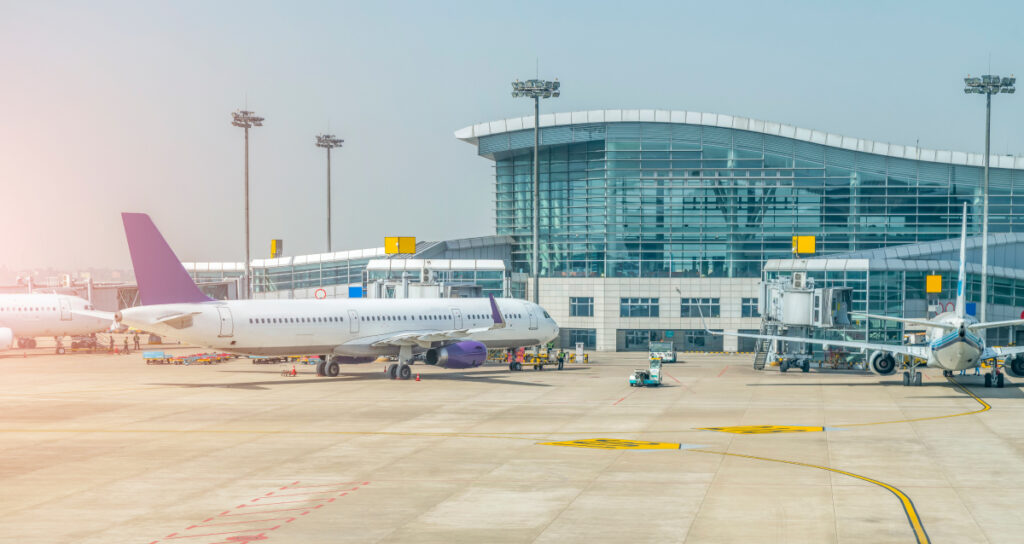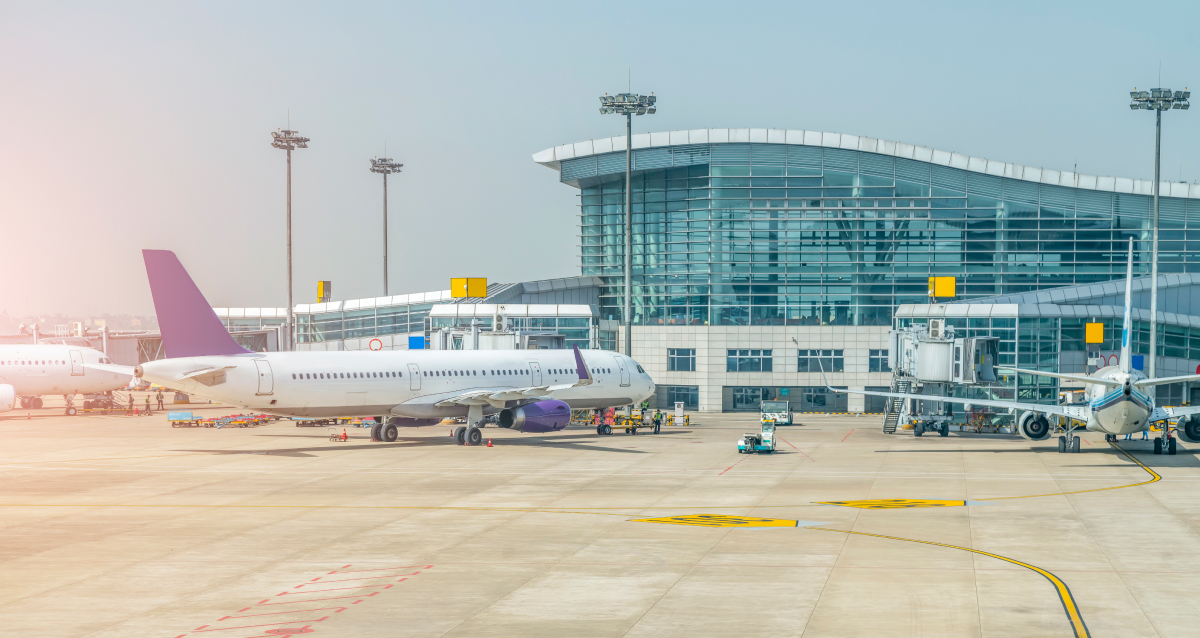
As technological advancements continue to drive innovation and shape consumer expectations, NDC in the travel industry emerges as a transformative force that promises to revolutionize how airlines distribute their products and services.
With its ability to provide airlines, travel managers, and consumers with enhanced flexibility, personalization, and efficiency, New Distribution Capability represents a shift towards a more dynamic and customer-centric approach to air travel.
By enabling airlines to offer a broader range of fare options, streamline the booking process, and unlock new ancillary revenue streams, NDC holds the potential to usher in a new era of seamless and tailored travel experiences.
This blog highlights the five significant effects of NDC for corporate travel and some of the challenges people may face.
5 Effects of NDC in Airline Industry
Let us find out the top 5 effects of NDC in airlines:
1. Efficient Ancillary Sales
NDC facilitates a streamlined and efficient way for airlines to showcase and promote ancillary services, optimizing the upselling opportunities during the booking journey. By integrating ancillary options seamlessly into the booking process, airlines can present travelers with relevant and enticing offers at strategic points, such as seat selection or confirmation pages.
This enhanced visibility and accessibility of ancillary services capitalize on travelers’ preferences and needs, increasing the likelihood of impulse purchases and driving incremental revenue for airlines.
Furthermore, NDC in the travel industry enables airlines to leverage personalized data insights to tailor ancillary offerings based on individual traveler profiles, preferences, and past behaviors, enhancing the relevance and appeal of these additional services.
As a result, airlines can effectively monetize ancillary opportunities while enhancing the overall booking experience for travelers, thereby fostering greater customer satisfaction and loyalty. Additionally, the direct distribution of ancillary services through NDC minimizes reliance on third-party channels, reducing distribution costs and maximizing airline revenue retention.
2. Competitive Fares
NDC revolutionizes the airline industry’s pricing strategies by extensively empowering carriers to diversify fare options. By implementing dynamic pricing and unbundled fare structures, airlines can tailor their offerings more precisely to suit diverse traveler preferences.
This flexibility extends beyond traditional fare categories, allowing airlines to adjust prices in real time based on factors such as demand, time of booking, and customer segmentation. Moreover, NDC in the travel industry facilitates seamless access to this wealth of fare information for travel sellers, enabling them to present customers with a comprehensive array of options and swiftly find the most competitive deals.
As a result, the competitive landscape in air travel becomes more dynamic and responsive, fostering greater accessibility and affordability for travelers while driving innovation in pricing strategies across the industry.
3. Enhanced Inventory Control
NDC for corporate travel empowers airlines with an advanced level of inventory control, revolutionizing their ability to manage pricing strategies and optimize revenue generation. This technology gives airlines unprecedented flexibility to adjust fares dynamically, allocate seating, and work inventory in real time.
This agility enables carriers to respond swiftly to shifts in market demand, competitor pricing dynamics, and evolving revenue objectives. By leveraging comprehensive data analytics and sophisticated algorithms, airlines can make data-driven decisions to fine-tune pricing strategies across their entire route network.
The proactive approach ensures optimal revenue generation and allows airlines to maximize yield by strategically allocating resources to high-demand routes and times. Moreover, NDC in the airline industry facilitates seamless integration with revenue management systems, enabling airlines to implement targeted pricing adjustments and promotional offers precisely.
4. Stimulating Innovation
Implementing NDC for corporate travel has ignited a wave of innovation throughout the travel industry. This innovation is evident across various aspects of the travel journey, from the initial booking stage to post-trip experiences, inspiring the creation of novel technologies, products, and services designed to elevate the customer experience and streamline operational processes.
For instance, the proliferation of mobile apps empowered by NDC in the travel industry enables travelers to seamlessly search for flights, make bookings, and manage their itineraries on the go, enhancing convenience and accessibility. Additionally, digital concierge services leverage NDC data to provide personalized recommendations, travel tips, and assistance throughout the journey, enriching the overall travel experience.
Furthermore, the emergence of virtual reality-based booking platforms revolutionizes how travelers visualize and select their travel options, offering immersive experiences that transcend traditional booking methods. Moreover, NDC-driven innovation extends beyond customer-facing solutions to encompass backend systems and operational processes.
Airlines and travel sellers leverage NDC to streamline inventory management, optimize revenue strategies, and enhance collaboration across the travel ecosystem. By embracing NDC-inspired innovation, stakeholders in the travel industry are reshaping the landscape, fostering greater efficiency, differentiation, and value for travelers and industry participants alike.
5. Improved Booking Experience
The seamless booking process facilitated by NDC in the travel industry ensures a hassle-free experience from start to finish. Travelers can navigate the booking process effortlessly, with intuitive interfaces and streamlined workflows guiding them. By eliminating unnecessary steps and minimizing friction points, NDC simplifies the booking process, reducing the time and effort required to make reservations.
Additionally, integrating ancillary services directly into the booking flow allows travelers to conveniently customize their travel experience according to their preferences and budget.
Moreover, the enhanced customer experience enabled by NDC extends beyond the booking stage to encompass the entire travel journey. Airlines can leverage NDC to provide personalized recommendations, real-time updates, and proactive assistance throughout the travel experience, ensuring that travelers feel valued and supported at every step.
Whether providing personalized in-flight entertainment options, offering targeted promotions based on travel history, or resolving issues in real-time, NDC in airline industry enables airlines to deliver service that exceeds customer expectations.
Suggested Read: 5 Airline NDC Myths in Travel Booking
Challenges Posed by NDC
Here are some challenges of NDC:
1. Data Security and Privacy Concerns
The adoption of NDC in the travel industry introduces new challenges related to data security and privacy compliance. Protecting personal data becomes paramount with the increased exchange of sensitive customer information between airlines, travel agencies, and technology providers. This necessitates robust security measures, data encryption protocols, and compliance with regulations such as the General Data Protection Regulation (GDPR) and the California Consumer Privacy Act (CCPA).
2. Interoperability Issues
The transition to NDC in airline industry may expose interoperability challenges between different systems and platforms within the travel ecosystem. As airlines, distribution partners, and technology vendors adopt NDC at varying paces and with other technical specifications, achieving seamless integration and interoperability becomes a significant hurdle. This requires standardized protocols, comprehensive testing procedures, and collaborative efforts to ensure compatibility and interoperability across diverse systems and stakeholders.
3. Resistance to Change
Resistance to change among stakeholders within the travel industry can impede the widespread adoption and implementation of NDC. Airlines, travel agencies, and technology providers may encounter internal resistance from employees accustomed to existing processes and systems. Overcoming resistance to change requires effective change management strategies, stakeholder engagement, and clear communication about the benefits and implications of transitioning to NDC in airline industry.
Streamline Corporate Travel Management
As the travel landscape evolves, NDC in the travel industry emerges as the cornerstone of corporate travel’s future, promising significant impacts. As the future of business travel unfolds, ITILITE emerges as a loyal companion, offering a comprehensive suite of solutions tailored to streamline corporate travel experiences.
With a focus on efficiency and seamlessness, ITILITE’s robust corporate travel management software caters to the diverse needs of business travelers and organizations alike. From effortlessly booking flights and accommodations to providing around-the-clock support and managing every aspect of the travel process, ITILITE ensures a hassle-free journey from start to finish.
Contact our seasoned experts today to discover the advanced features that will elevate your corporate travel experience.













